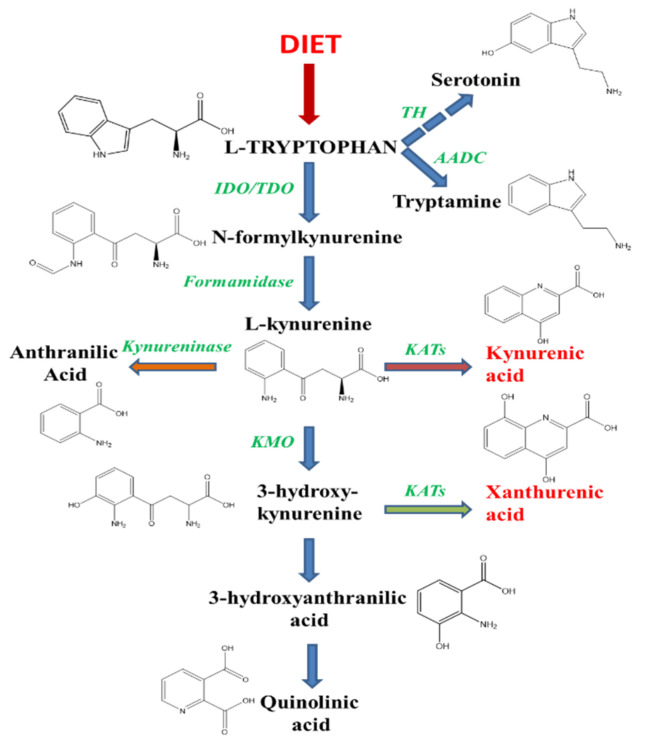Figure 1.
Tryptophan as a precursor of serotonin, XA and tryptamine. Tryptophan is an essential amino acid the concentration of which is regulated by food intake and gut microbiota. Tryptophan and many of its metabolites are transported into the brain via regulated mechanisms and give rise to many active compounds in the CNS. The principal pathway is degradation through kynurenine and the synthesis of two related analogues, kynurenic and xanthurenic acid. These two compounds have opposite effects on dopamine disposal in the brain. In addition, tryptophan is the precursor of the serotonin neurotransmission pathway and of tryptamine, an indolamine compound which stimulate trace-amine receptors in the CNS, especially TAAR1. The three pathways of tryptophan degradation produce substances linked to psychosis and are involved in the modulation of dopaminergic activities in the brain. TH, tryptophan hydroxylase; AADC, aromatic amino-acid decarboxylase; IDO, indolamine dioxygenase; TDO, tryptophan dioxygenase; KATs, kynurenine aminotransferases; KMO, kynurenine monooxygenase.

